Related Research Articles
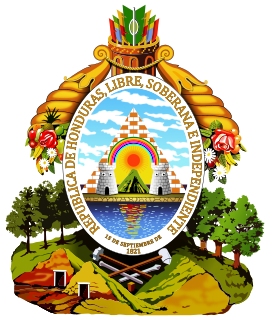
Politics of Honduras takes place in a framework of a multi-party system presidential representative democratic republic. The President of Honduras is both head of state and head of government. Executive power is exercised by the government. Legislative power is vested in the National Congress of Honduras. The party system is dominated by the conservative National Party of Honduras and the Liberal Party of Honduras. The Judiciary is independent of the executive and the legislature.

The Armed Forces of Honduras, consists of the Honduran Army, Honduran Navy and Honduran Air Force.
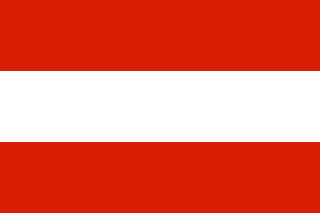
The Liberal Party of Honduras is a centrist liberal political party in Honduras that was founded in 1891. It is the oldest extant political party in the country, and one of the two main parties that have until recently dominated Honduran politics. The party is a member of the Liberal International. The PLH is identified with the colours red and white, as the flag Francisco Morazán used in most of his military campaigns during time of the Central American Federal Republic.
Liberalism in Honduras is a form of Latin American liberalism. It was influenced by French revolutionaries from 1789 to 1799, when the door was open for ideas of positivism. During this time the populace were exposed to liberal ideas such as: liberty, equality, and popular sovereignty, causing enthusiasm for them to be increased.

Porfirio Lobo Sosa, known as Pepe Lobo, is a Honduran politician and agricultural landowner who served as President of Honduras from 2010 to 2014. A member of the conservative National Party and a former deputy in the National Congress of Honduras from 1990, he was president of the National Congress of Honduras from 2002 to 2006. He came second to Manuel Zelaya with 46% of the vote in the 2005 general election. After the military ousted Zelaya in a coup d'état, Lobo was elected president in the 2009 presidential election and took office on 27 January 2010.

Carlos Roberto Flores Facussé is a Honduran politician and businessman who served as the President of Honduras from 1998 to 2002. A member of the Liberal Party, Flores was previously the President of the National Congress from 1994 to 1998.

José Manuel Zelaya Rosales is a Honduran politician who was President of Honduras from 27 January 2006 until 28 June 2009, and who since January 2022 serves as the first First Gentleman of Honduras. He is the eldest son of a wealthy businessman, and inherited his father's nickname "Mel". Before entering politics he was involved in his family's logging and timber businesses.
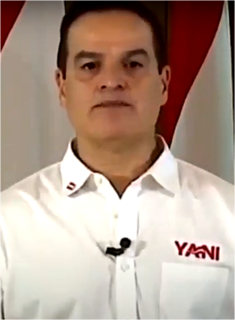
Yani Benjamin Rosenthal Hidalgo is a businessman, politician and former convict.
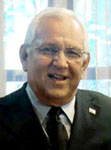
Roberto Micheletti Baín is a Honduran politician who served as the interim de facto president of Honduras from 28 June 2009 to 27 January 2010 as a result of the 2009 Honduran coup d'état. The Honduran military ousted the President, and the National Congress read a letter of resignation, which was refuted two minutes later by Zelaya in conversation with CNN en Español; days later, the coup-plotters claimed that the Supreme Court had ordered to forcefully detain President Manuel Zelaya because "he was violating the Honduran constitution"; Zelaya was exiled rather than arrested. Micheletti, constitutionally next in line for the presidency, was sworn in as president by the National Congress a few hours after Zelaya was sent into exile by the Honduran military. He was not acknowledged as de jure president by any government or international organization. The 2009 general election took place as planned in November and elected Porfirio Lobo Sosa to succeed Micheletti.

The 2009 Honduran constitutional crisis was a political dispute over plans to either rewrite the Constitution of Honduras or write a new one.

The Political Constitution of the Republic of Honduras was approved on 11 January 1982, published on 20 January 1982, amended by the National Congress of Honduras 26 times from 1984 to 2005, and 10 interpretations by Congress were made from 1982 to 2005. It is Honduras' twelfth constitution since independence in 1838. Previous charters were adopted in 1839, 1848, 1865, 1873, 1880, 1894, 1906, 1924, 1936, 1957 and 1965.

The Supreme Court of Honduras is the Supreme Court and Constitutional Court of Honduras. The Supreme Court is the highest judicial authority in Honduras.
The 2009 Honduran constitutional crisis was a political confrontation concerning the events that led to, included, and followed the 2009 Honduran coup d'état and the political breakdown associated with it. The coup was repudiated around the globe, but Roberto Micheletti, head of the government installed after the coup, has claimed that the Honduran Supreme Court ordered the detention of Manuel Zelaya, deposed President of Honduras, and that the following succession was constitutionally valid.

The 2009 Honduran coup d'état, part of the 2009 Honduran constitutional crisis, occurred when the Honduran Army on 28 June 2009 followed orders from the Honduran Supreme Court to oust President Manuel Zelaya and send him into exile. Zelaya had attempted to schedule a non-binding poll on holding a referendum on convening a constituent assembly to rewrite the constitution. Zelaya refused to comply with court orders to cease, and the Honduran Supreme Court issued a secret warrant for his arrest dated 26 June. Two days later, Honduran soldiers stormed the president's house in the middle of the night and detained him, forestalling the poll. Instead of bringing him to trial, the army put him on a military aeroplane and flew him to Costa Rica. Later that day, after the reading of a resignation letter of disputed authenticity, the Honduran Congress voted to remove Zelaya from office, and appointed Speaker of Congress Roberto Micheletti, his constitutional successor, to replace him. It was the first coup to occur in the country since 1978.
Billy Fernando Joya Améndola is a former Honduran military officer who worked in the controversial Battalion 3-16, national security adviser at Manuel Zelaya's government, a post in which he has continued.

Serious issues involving human rights in Honduras through the end of 2013 include unlawful and arbitrary killings by police and others, corruption and institutional weakness of the justice system, and harsh and at times life-threatening prison conditions.
The Committee for the Defense of Human Rights in Honduras is a human rights NGO in Honduras founded in 1981.
Medardo Flores, a radio journalist for Radio Uno in San Pedro Sula, was murdered in an ambush near his home in Puerto Cortes, Cortés Department, Honduras. A popular radio journalist, he was a supporter of former President Manuel Zelaya Rosales and joins other journalists killed since Zelaya was overthrown in the 2009 Honduran coup d'état.
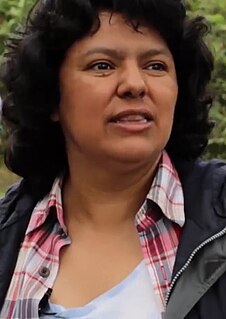
Berta Isabel Cáceres Flores was a Honduran (Lenca) environmental activist, indigenous leader, and co-founder and coordinator of the Council of Popular and Indigenous Organizations of Honduras (COPINH). She won the Goldman Environmental Prize in 2015, for "a grassroots campaign that successfully pressured the world’s largest dam builder to pull out of the Agua Zarca Dam" at the Río Gualcarque.
Freedom of the press in Honduras began with the government of Francisco Morazán as president of the Federal Republic of Central America in 1830, when he enacted the liberal reforms, which included reforms to education, freedom of the press, and freedom of religion.